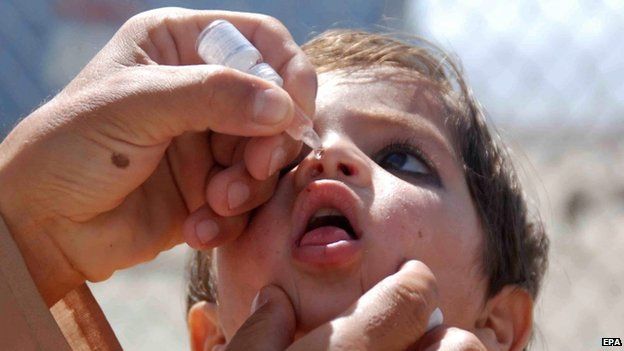
The samples, from Baheri, Meergunj, Faridpur and Nawabgunj among others, have been sent to the central laboratory in Mumbai for further testing. Hospital officials have also been informed that children aged between five and 15 have been complaining of paralysis and loss of muscular strength.
Read: India investigates suspected polio in two toddlers
According to the rules of the World Health Organisation (WHO), a country needs to have zero recorded cases of an infectious disease for three years for the disease to be eradicated.
After years of intense campaigns across the country, India's last polio case, that of 18-month-old Rukhsar from Howrah district in West Bengal, was reported in 2011. Three years later, the country was declared polio free.
The latest cases were examined by a team of doctors at primary and community health centres who spoke to the WHO officials. The organisation made the effort to collect stool samples of about 208 children, which were then sent to the Mumbai lab.
On the other hand however, the local administration is taking no chances.
"We have deputed special teams across the district who are keeping an eye on such cases. Weakness in hands and legs does not essentially mean that the child is suffering from polio. Only if the test report of the stool sample confirms presence of wild polio virus can it be treated as a case of polio. We have received reports of 170 samples from the lab so far and they have been negative. Reports for the remaining are awaited," chief medical officer (CMO) Vijay Yadav told the Times of India.
Read: Polio eradication: Pakistan welcomes Iran’s offer of free vaccines
The last polio case in Bareilly, said Yadav, was reported in 2009 from Bhamaura village, while Uttar Pradesh's last case was reported in 2010 in Firozabad district. In 2015, WHO had collected 5,551 samples in 2015. Most of them tested negative and the reports of 787 are awaited.
"Across the world this year, only 25 cases of polio have been reported from Pakistan and three in Afghanistan. We have to remain extra cautious, because we share our boundary with Pakistan and chances are that the virus will be transmitted from there," said Yadav.
This article originally appeared in the Times of India.


1723278472-0/BeFunky-collage-(4)1723278472-0-165x106.webp)


1732518687-0/Copy-of-Untitled-(78)1732518687-0-270x192.webp)











COMMENTS
Comments are moderated and generally will be posted if they are on-topic and not abusive.
For more information, please see our Comments FAQ